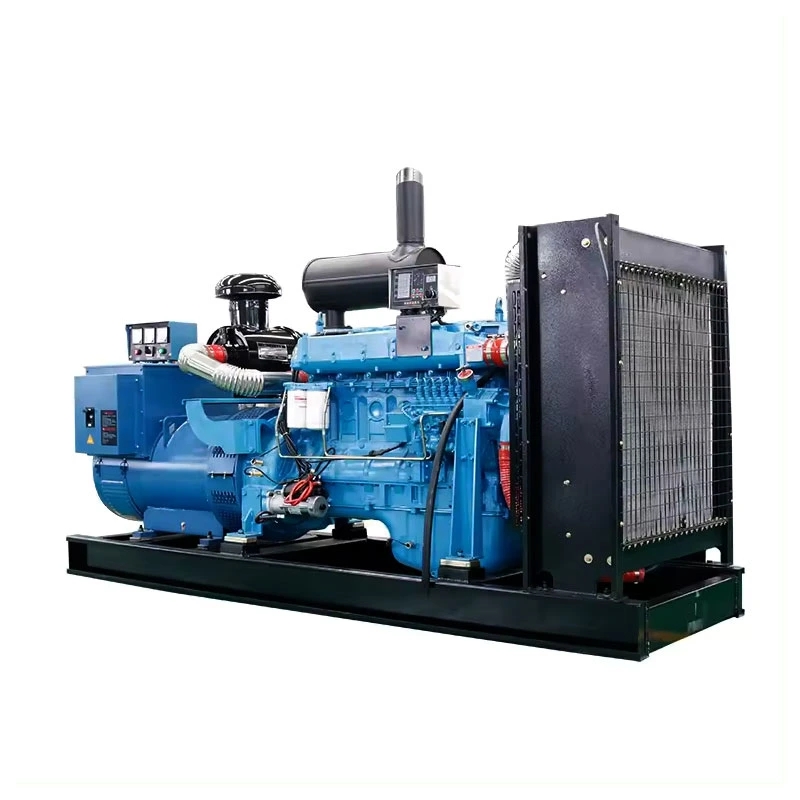Introduction
Diesel generators play a vital role in providing backup power during emergencies or in off-grid locations where access to the main power grid is limited. These generators are commonly used in industrial settings, hospitals, data centers, and remote areas to ensure uninterrupted power supply. However, the efficiency of diesel generators can vary based on factors such as maintenance, load demand, and environmental conditions. To optimize the performance of diesel generators and ensure reliable power supply, monitoring systems are essential. In this article, we will explore the importance of monitoring diesel generators for efficiency and discuss how advanced monitoring systems can help improve performance and reduce operational costs.
Importance of Diesel Generator Efficiency Monitoring
Efficiency monitoring is crucial for diesel generators to ensure they operate at peak performance levels and minimize energy wastage. By monitoring key parameters such as fuel consumption, load demand, temperature, and vibration levels, operators can identify potential issues early on and take proactive measures to prevent downtime and costly repairs. Here are some key reasons why efficiency monitoring is essential for diesel generators:
1. Cost Savings: Monitoring diesel generator efficiency can help identify inefficiencies in fuel consumption and operation, allowing operators to make adjustments to improve performance and reduce operating costs. By optimizing fuel usage and load management, operators can save on fuel expenses and prolong the lifespan of the generator.
2. Preventive Maintenance: Regular monitoring of key parameters such as oil pressure, coolant temperature, and vibration levels can help detect potential issues before they escalate into major problems. By identifying early warning signs, operators can schedule preventive maintenance tasks and avoid costly breakdowns that can result in downtime and production losses.
3. Performance Optimization: Monitoring systems provide real-time data on generator performance, allowing operators to adjust settings and operating parameters to optimize efficiency and output. By fine-tuning the generator's operation based on actual load demand and environmental conditions, operators can maximize power output while minimizing fuel consumption.
4. Remote Monitoring: Advanced monitoring systems enable operators to remotely monitor the performance of diesel generators from anywhere, using cloud-based platforms or mobile applications. This remote monitoring capability allows for quick response to alarms or alerts, as well as proactive maintenance scheduling without the need for on-site inspections.

5. Compliance and Reporting: Many industries have strict regulations and standards for emissions, fuel consumption, and generator performance. By implementing monitoring systems that track and report key parameters, operators can ensure compliance with environmental regulations and demonstrate accountability in energy management practices.
Advanced Monitoring Systems for Diesel Generators
To achieve optimal efficiency and performance, modern diesel generators are equipped with advanced monitoring systems that provide real-time data on key operational parameters. These monitoring systems use sensors, controllers, and software to collect, analyze, and display information about the generator's performance. Here are some key features of advanced monitoring systems for diesel generators:
1. Remote Monitoring and Control: Remote monitoring systems allow operators to access real-time data on generator performance, fuel consumption, and operational status from anywhere with an internet connection. This capability enables proactive maintenance planning, troubleshooting, and performance optimization without the need for on-site visits.
2. Data Logging and Analysis: Monitoring systems collect and store data on various parameters such as fuel consumption, engine temperature, load demand, and running hours. By analyzing historical data trends, operators can identify patterns, anomalies, and potential issues that may impact efficiency and reliability.
3. Alarms and Alerts: Monitoring systems are equipped with alarm notifications and alerts that notify operators of critical events such as low fuel levels, high temperatures, or abnormal vibrations. These alerts enable quick response to potential problems and help prevent unplanned downtime or equipment failures.
4. Fuel Monitoring and Management: Fuel is a significant operating cost for diesel generators, and monitoring fuel consumption is essential for cost control and efficiency optimization. Monitoring systems track fuel levels, consumption rates, and refill schedules to ensure uninterrupted operation and prevent fuel shortages.
5. https://www.lkpowerplant.com : Advanced monitoring systems use predictive analytics and machine learning algorithms to forecast equipment failures and recommend maintenance actions based on real-time data. By predicting potential issues before they occur, operators can schedule maintenance tasks proactively and avoid costly downtime.
Case Studies and Success Stories
Several industries have successfully implemented diesel generator monitoring systems to improve efficiency, reduce costs, and enhance reliability. Here are some case studies and success stories showcasing the benefits of advanced monitoring systems for diesel generators:
1. Data Center Industry: Data centers rely on diesel generators as backup power sources to maintain uninterrupted operations during power outages. By implementing advanced monitoring systems that track fuel consumption, load demand, and performance metrics, data center operators can optimize generator efficiency and ensure reliable power supply for critical IT infrastructure.
2. Telecom Industry: Telecommunication networks use diesel generators to provide backup power for cell towers and communication facilities in remote locations. By deploying monitoring systems that enable remote access and control, telecom operators can monitor generator performance in real-time, detect faults early, and schedule maintenance tasks proactively to minimize service disruptions.
3. Healthcare Sector: Hospitals and healthcare facilities depend on diesel generators to power life-saving equipment and maintain essential services during emergencies. By installing monitoring systems that provide real-time data on generator status, healthcare providers can ensure continuous power supply, compliance with regulatory standards, and patient safety.
Conclusion
Efficiency monitoring is essential for diesel generators to ensure reliable performance, cost savings, and compliance with industry standards. Advanced monitoring systems play a crucial role in optimizing generator efficiency, preventing downtime, and improving overall system reliability. By implementing monitoring systems that provide real-time data, remote access, and predictive maintenance capabilities, operators can maximize the efficiency of diesel generators and ensure uninterrupted power supply in critical applications. As technology continues to evolve, monitoring systems will play an increasingly important role in enhancing efficiency and sustainability in the operation of diesel generators.
